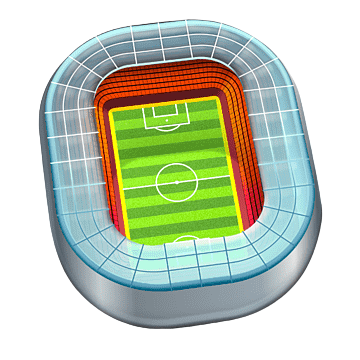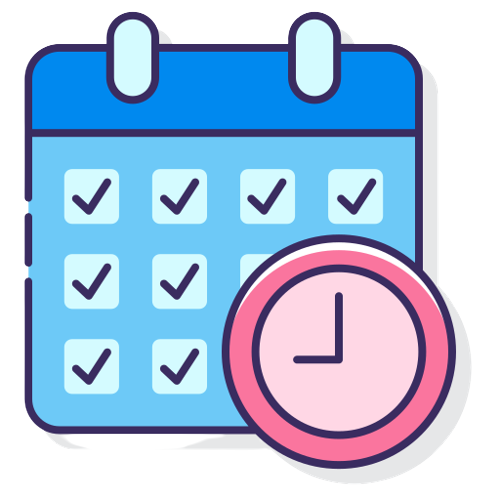9 Things Your Parents Teach You About Personal Injury Lawsuit
페이지 정보
작성자 Alberto Carlton 댓글 0건 조회 308회 작성일 24-04-23 19:31본문
How to File a Personal Injury Case
If you've been injured by the negligence of another you are entitled to file a personal injury case. In order to win, you need to demonstrate that the other party owed you the duty of care and breached the duty.
It isn't always easy to prove negligence. However you can make it easier for yourself by getting legal advice early in your case.
Statute of Limitations
You could be eligible to bring a personal injury lawsuit when you've been hurt. This is generally the case in the event that you've suffered harm because of the negligence of someone else or their intentional actions.
The statutes of limitations, which are the rules that each state decides to determine when a plaintiff can file a suit for injury, are the rules. They are designed to ensure that plaintiffs are treated fairly, and that defendants don't get too many time to lose evidence or make defenses.
The ability to store physical evidence and remember things can lead to loss of memory. The US law stipulates that personal injury cases be filed within a specific time period, typically two to four years.
Some exceptions can be made to the statute of limitations, which can give you more time to file a suit. The statute of limitations can be extended for up to two years if the party responsible for your injuries has left the country for a period of time before you file a lawsuit against them.
A New York personal injury lawyer can help you determine the time that your statute of limitations begins and ends. They can help you determine whether your case is suitable for an extension and the length of time it would run.
Preparation
Proper preparation is crucial when you file a personal injury claim. It will assist you through the litigation process and provide you with confidence and assurance that your case is progressing in the right direction.
Gathering as much evidence you can is the first step to making preparations for personal Injury a personal injury case. This includes medical records, witness statements, as well as other documentation that may be relevant to the accident.
Another important step is to share all the information with your lawyer. To create a strong case for you, your lawyer will need to know everything about the incident as well as your injuries.
Once your legal team has all of the required documents they can begin preparing for the possibility of a lawsuit. They will draft a Bill of Particulars, which will outline your injuries as well as the total cost of medical bills and lost earnings.
Your lawyer will also be able to explain the timeline of the litigation process and what documents, information, and authorizations need to be exchanged between you and the lawyers of the defendant. This will provide you with a clear understanding of the process and help you to make informed choices that are in your best interests.
The next step is to file a summons to court. The summons will state that you are suing the person responsible for your injuries. You will be seeking compensation for the financial, emotional physical, and emotional injuries you suffered due to the accident.
Filing
A personal injury case can help you receive compensation for your injuries. It also assists you in collect evidence in a formal manner to ensure that it is preserved for use later in court.
The process of filing begins by the preparation of your complaint, which defines the legal basis for the lawsuit. It also contains the numbered allegations that are based on negligence or another legal theory. The defendant must be informed about the relief you seek as well as the amount you want to recover for your injuries as well as loss of income.
Once you file your complaint, it is served on the defendant. The defendant is required to "answer" the complaint, in which they either deny or acknowledge each of your claims.
If you decide to decide to file a lawsuit it is essential to know the rules and regulations that are in place in your state. Although this may be a daunting task it is possible to find helpful information and guidelines that can aid you in navigating the process.
Sometimes, a dispute can be settled without having to go to court. This can help you avoid the stress of trial, and also save the need for large sums of damages or attorney fees.
It is a good idea to talk to an experienced personal injury lawyer as soon after an accident. This will ensure that you get a fair settlement and can help you feel more comfortable about the process.
Trial
A trial is a legal process where opposing parties present evidence and argue about the law's application to the issue. It is similar to a trial in which a prosecutor presents evidence or arguments in relation to a crime. But instead of an judge there is jurors.
In an injury case the trial process involves both sides presenting their case before a jury or judge who decides whether the defendant is accountable for your injuries and damages. The defendant is then given the opportunity to present evidence to refute the plaintiff's claim.
When a jury is picked after which the plaintiff's lawyer gives opening statements to introduce their case. To make their case stronger, they may present expert testimony and witnesses.
The lawyer for defense of the defendant will then argue that their client is not responsible. They will use testimony from witnesses as well as physical evidence and other evidence to prove their case.
After the trial the jury will decide whether the defendant is accountable for your injuries, and what amount of money they must pay to cover the cost of your injuries and damages. The outcome of a trial can vary widely depending on the type of case and the participant in the case.
A trial can be expensive and time-consuming. However, if you have an experienced lawyer with the knowledge and experience required to successfully navigate a trial it could be worth the cost. Moreover, a jury may give you more than you were initially offered for your pain and suffering.
Settlement
An insurer or defendant might offer to pay you money for your injuries and damages. This is known as personal injury settlement. It's an alternative to trial, which typically involves costly and long-running procedures.
Most personal injury cases settle before going to trial. Insurance companies are cautious about taking risks and want to avoid legal fees.
Your attorney will work with experts in the field to assess your damages and determine the amount of your compensation. This includes talking with experts in the field of health and economics who can determine the cost of your future medical treatment and property damage.
Another important aspect that will be considered in the settlement negotiations is the cause of the accident or the other party. If they are found to be at fault for the accident, this could increase the amount of your settlement.
While the settlement process is lengthy and unpredictable, it is essential to receive the compensation you have earned. Your lawyer will make use of their expertise and years of knowledge to ensure that you receive the full amount of your losses.
Many personal injury lawyers operate on a contingent fee basis. This means that you don't have to pay them until they're paid. If you choose to hire them, this will be outlined in the contract. The final settlement amount will also include your attorney’s fees.
Appeal
If you think the jury's decision in your personal injury case was not correct You can appeal the verdict. An appellate court, located above the trial court, handles appeals. The higher court judges will scrutinize the evidence to determine if there were any mistakes or abuses of power.
A skilled personal injury lawyer can help you determine whether or not you should appeal your case. Typically, you must have an extremely compelling reason to consider appealing.
The first step in a personal injury appeal is to file a legal brief that highlights why you believe the verdict of the trial court was wrong. The brief should also contain any additional evidence that proves your argument.
If your appeal is complex and requires a lawyer, you may need to organize an oral argument. Arguments must be built around specific issues and cite relevant cases.
Based on the circumstances of your case, it may take months or even years for a judge to make an appeal decision. Your lawyer can explain the procedure and give you an estimate of how long it will take to resolve your case.
An experienced New York personal injury lawyer can assist you in deciding whether to appeal. They will keep your informed throughout the process and be prepared to present you in court if necessary.
If you've been injured by the negligence of another you are entitled to file a personal injury case. In order to win, you need to demonstrate that the other party owed you the duty of care and breached the duty.
It isn't always easy to prove negligence. However you can make it easier for yourself by getting legal advice early in your case.
Statute of Limitations
You could be eligible to bring a personal injury lawsuit when you've been hurt. This is generally the case in the event that you've suffered harm because of the negligence of someone else or their intentional actions.
The statutes of limitations, which are the rules that each state decides to determine when a plaintiff can file a suit for injury, are the rules. They are designed to ensure that plaintiffs are treated fairly, and that defendants don't get too many time to lose evidence or make defenses.
The ability to store physical evidence and remember things can lead to loss of memory. The US law stipulates that personal injury cases be filed within a specific time period, typically two to four years.
Some exceptions can be made to the statute of limitations, which can give you more time to file a suit. The statute of limitations can be extended for up to two years if the party responsible for your injuries has left the country for a period of time before you file a lawsuit against them.
A New York personal injury lawyer can help you determine the time that your statute of limitations begins and ends. They can help you determine whether your case is suitable for an extension and the length of time it would run.
Preparation
Proper preparation is crucial when you file a personal injury claim. It will assist you through the litigation process and provide you with confidence and assurance that your case is progressing in the right direction.
Gathering as much evidence you can is the first step to making preparations for personal Injury a personal injury case. This includes medical records, witness statements, as well as other documentation that may be relevant to the accident.
Another important step is to share all the information with your lawyer. To create a strong case for you, your lawyer will need to know everything about the incident as well as your injuries.
Once your legal team has all of the required documents they can begin preparing for the possibility of a lawsuit. They will draft a Bill of Particulars, which will outline your injuries as well as the total cost of medical bills and lost earnings.
Your lawyer will also be able to explain the timeline of the litigation process and what documents, information, and authorizations need to be exchanged between you and the lawyers of the defendant. This will provide you with a clear understanding of the process and help you to make informed choices that are in your best interests.
The next step is to file a summons to court. The summons will state that you are suing the person responsible for your injuries. You will be seeking compensation for the financial, emotional physical, and emotional injuries you suffered due to the accident.
Filing
A personal injury case can help you receive compensation for your injuries. It also assists you in collect evidence in a formal manner to ensure that it is preserved for use later in court.
The process of filing begins by the preparation of your complaint, which defines the legal basis for the lawsuit. It also contains the numbered allegations that are based on negligence or another legal theory. The defendant must be informed about the relief you seek as well as the amount you want to recover for your injuries as well as loss of income.
Once you file your complaint, it is served on the defendant. The defendant is required to "answer" the complaint, in which they either deny or acknowledge each of your claims.
If you decide to decide to file a lawsuit it is essential to know the rules and regulations that are in place in your state. Although this may be a daunting task it is possible to find helpful information and guidelines that can aid you in navigating the process.
Sometimes, a dispute can be settled without having to go to court. This can help you avoid the stress of trial, and also save the need for large sums of damages or attorney fees.
It is a good idea to talk to an experienced personal injury lawyer as soon after an accident. This will ensure that you get a fair settlement and can help you feel more comfortable about the process.
Trial
A trial is a legal process where opposing parties present evidence and argue about the law's application to the issue. It is similar to a trial in which a prosecutor presents evidence or arguments in relation to a crime. But instead of an judge there is jurors.
In an injury case the trial process involves both sides presenting their case before a jury or judge who decides whether the defendant is accountable for your injuries and damages. The defendant is then given the opportunity to present evidence to refute the plaintiff's claim.
When a jury is picked after which the plaintiff's lawyer gives opening statements to introduce their case. To make their case stronger, they may present expert testimony and witnesses.
The lawyer for defense of the defendant will then argue that their client is not responsible. They will use testimony from witnesses as well as physical evidence and other evidence to prove their case.
After the trial the jury will decide whether the defendant is accountable for your injuries, and what amount of money they must pay to cover the cost of your injuries and damages. The outcome of a trial can vary widely depending on the type of case and the participant in the case.
A trial can be expensive and time-consuming. However, if you have an experienced lawyer with the knowledge and experience required to successfully navigate a trial it could be worth the cost. Moreover, a jury may give you more than you were initially offered for your pain and suffering.
Settlement
An insurer or defendant might offer to pay you money for your injuries and damages. This is known as personal injury settlement. It's an alternative to trial, which typically involves costly and long-running procedures.
Most personal injury cases settle before going to trial. Insurance companies are cautious about taking risks and want to avoid legal fees.
Your attorney will work with experts in the field to assess your damages and determine the amount of your compensation. This includes talking with experts in the field of health and economics who can determine the cost of your future medical treatment and property damage.
Another important aspect that will be considered in the settlement negotiations is the cause of the accident or the other party. If they are found to be at fault for the accident, this could increase the amount of your settlement.
While the settlement process is lengthy and unpredictable, it is essential to receive the compensation you have earned. Your lawyer will make use of their expertise and years of knowledge to ensure that you receive the full amount of your losses.
Many personal injury lawyers operate on a contingent fee basis. This means that you don't have to pay them until they're paid. If you choose to hire them, this will be outlined in the contract. The final settlement amount will also include your attorney’s fees.
Appeal
If you think the jury's decision in your personal injury case was not correct You can appeal the verdict. An appellate court, located above the trial court, handles appeals. The higher court judges will scrutinize the evidence to determine if there were any mistakes or abuses of power.
A skilled personal injury lawyer can help you determine whether or not you should appeal your case. Typically, you must have an extremely compelling reason to consider appealing.
The first step in a personal injury appeal is to file a legal brief that highlights why you believe the verdict of the trial court was wrong. The brief should also contain any additional evidence that proves your argument.
If your appeal is complex and requires a lawyer, you may need to organize an oral argument. Arguments must be built around specific issues and cite relevant cases.
Based on the circumstances of your case, it may take months or even years for a judge to make an appeal decision. Your lawyer can explain the procedure and give you an estimate of how long it will take to resolve your case.
An experienced New York personal injury lawyer can assist you in deciding whether to appeal. They will keep your informed throughout the process and be prepared to present you in court if necessary.
댓글목록
등록된 댓글이 없습니다.






